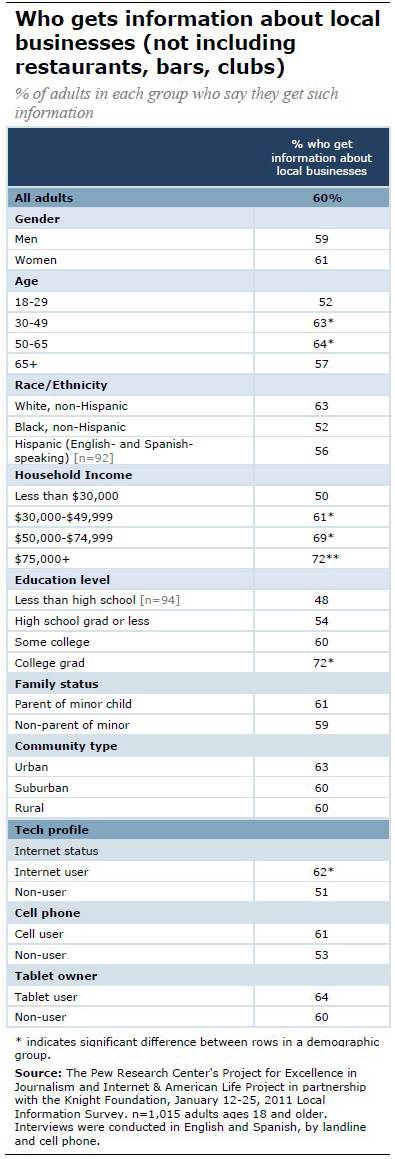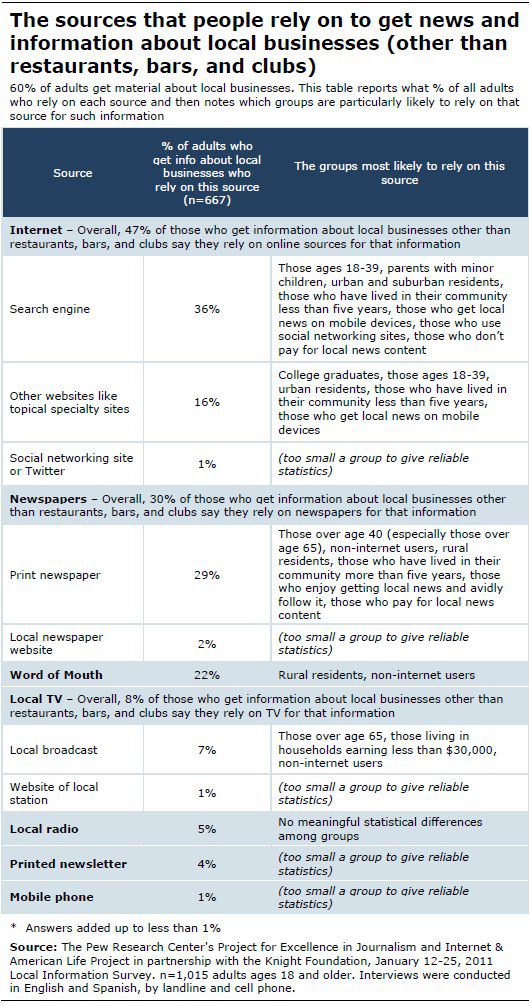Who gets information about local businesses (not including restaurants, bars, clubs)
Those who get information about local businesses that are not tied to eating or socializing are a diverse and somewhat upscale group. Those who get this information are more likely to have college or advanced degrees, live in relatively high-earning households, use the internet and own cell phones. They are not distinct by gender or race and ethnicity.

They are also likely to be local news and information junkies. Those who get news and information from at least six different local news platforms monthly are considerably more likely than others to get material about local businesses.
We asked people about their use of 14 different kinds of sources to get local news and their frequency of using those platforms.5 Some 72% of those who used at least six platforms monthly got news and information about local businesses, compared with 39% of those who relied on just one or two sources.
Additionally, we asked people if they got local news and information their cell phones and 47% of all adults said they did.6
Those mobile consumers were also more likely than others to get material about local businesses: 65% of mobile local news consumers got information about local businesses, compared with 55% of others.
The platforms people use to get information about local businesses
We asked the 60% of adults who said they got information about local businesses what sources they relied on for such information. In broad terms:
- Internet : 47% say some kind of online source is the one they most rely upon.
- Newspaper : 30% say they most rely on newspaper material either in printed form or the website of their local newspaper for local business information
- Word of mouth: 22% say they rely on other people most of all for news and information about local businesses
- Local TV: 8% say they rely on TV for news about local businesses – either broadcasts or the stations’ websites
- Local radio: 5% of adults say they rely on local radio

When it comes to getting information about local businesses, some 11% of the respondents who get this kind of information cited other sources beyond the main categories that we used.7 These answers were not specifically recorded, but might have included such things as advertising messaging via such things as billboards, signs, or phone directories; salesclerk or stranger recommendations; observations of foot traffic to stores; and general awareness of brands or merchants that didn’t arise from any particular information source.




